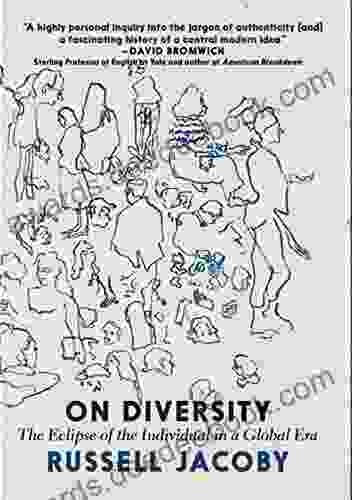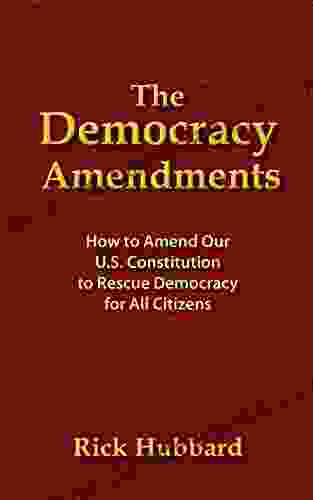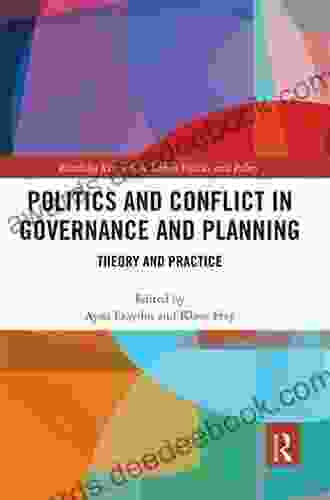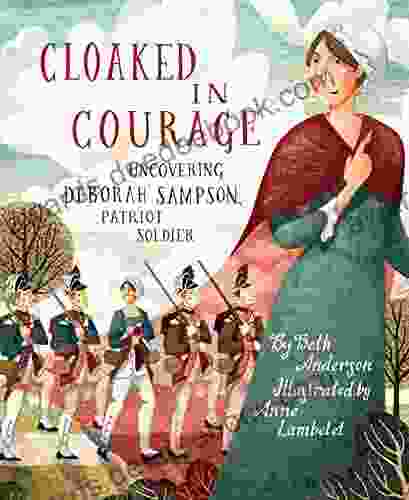Politics and Conflict in Governance and Planning: A Comprehensive Analysis

Governance and planning are inherently political processes, involving the allocation of resources, the making of decisions, and the implementation of policies. Politics, broadly defined as the process of shaping and influencing collective actions, plays a crucial role in shaping the outcomes of governance and planning processes.
However, politics can also lead to conflict and disagreement, as different stakeholders with competing interests seek to influence decision-making. This article explores the complex relationship between politics and conflict in governance and planning, examining the various forms of political influence, the role of interest groups, and the challenges posed by conflict and disagreement. By understanding the political dynamics at play, we can work towards more inclusive and effective governance and planning processes that benefit all stakeholders.
4.8 out of 5
| Language | : | English |
| File size | : | 1461 KB |
| Text-to-Speech | : | Enabled |
| Screen Reader | : | Supported |
| Enhanced typesetting | : | Enabled |
| Word Wise | : | Enabled |
| Print length | : | 267 pages |
Forms of Political Influence
There are various forms of political influence that can shape governance and planning processes. These include:
- Lobbying: Lobbying involves attempts by interest groups to influence decision-makers directly, typically through personal meetings, phone calls, or written submissions.
- Campaign finance: Campaign finance refers to the funding of political campaigns by individuals or organizations. This can give donors leverage over elected officials, who may feel obligated to support policies that benefit their contributors.
- Grassroots organizing: Grassroots organizing involves mobilizing ordinary citizens to support or oppose particular policies or candidates. This can be a powerful form of political influence, as it can generate public pressure on decision-makers.
- Litigation: Litigation involves using the courts to challenge government policies or actions. This can be a powerful tool for advocacy groups and individuals seeking to influence policy outcomes.
li>Media advocacy: Media advocacy involves using the media to promote particular policy positions or influence public opinion. This can be done through editorials, op-eds, or paid advertising.
Role of Interest Groups
Interest groups are organizations that represent the interests of particular constituencies or sectors of society. Interest groups play a significant role in governance and planning processes, as they seek to influence decision-makers on behalf of their members. Interest groups can use a variety of tactics to exert their influence, including lobbying, campaign finance, grassroots organizing, and media advocacy.
The role of interest groups in governance and planning can be both positive and negative. On the one hand, interest groups can provide valuable information and expertise to decision-makers, and they can help to ensure that the interests of all stakeholders are taken into account. On the other hand, interest groups can also be a source of conflict and disagreement, as they may seek to promote their own narrow interests at the expense of others.
Challenges Posed by Conflict and Disagreement
Conflict and disagreement are inherent aspects of governance and planning. This is because different stakeholders often have competing interests, and because there is often more than one way to achieve a particular goal. Conflict and disagreement can be healthy and productive, as they can lead to the generation of new ideas and solutions. However, conflict and disagreement can also be destructive, as they can lead to gridlock and paralysis.
There are a number of challenges posed by conflict and disagreement in governance and planning. These include:
- Fragmentation: Conflict and disagreement can lead to the fragmentation of the decision-making process, as different stakeholders pursue their own interests. This can make it difficult to reach consensus and implement policies effectively.
- Gridlock: Conflict and disagreement can also lead to gridlock, as different stakeholders are unable to agree on a path forward. This can prevent the government from taking action on important issues.
- Polarization: Conflict and disagreement can also lead to polarization, as different stakeholders become entrenched in their positions. This can make it difficult to find common ground and resolve conflicts.
Addressing Conflict and Disagreement
There are a number of ways to address conflict and disagreement in governance and planning. These include:
- Facilitation: Facilitation can help to create a more constructive dialogue between different stakeholders. Facilitators can help to identify common ground, manage conflict, and develop solutions that are acceptable to all parties.
- Consensus building: Consensus building is a process of reaching agreement among all stakeholders. This can be a challenging process, but it can be essential for resolving conflicts and implementing policies effectively.
- Mediation: Mediation is a process of resolving conflicts with the help of a neutral third party. Mediators can help to facilitate communication between different stakeholders, and they can help to develop solutions that are fair and equitable.
- Negotiation: Negotiation is a process of reaching agreement between two or more parties who have different interests. Negotiation can be used to resolve conflicts or to develop new policies.
Politics and conflict are inherent aspects of governance and planning. Understanding the complex relationship between these two forces is essential for effective governance and planning. By understanding the various forms of political influence, the role of interest groups, and the challenges posed by conflict and disagreement, we can work towards more inclusive and effective governance and planning processes that benefit all stakeholders.
4.8 out of 5
| Language | : | English |
| File size | : | 1461 KB |
| Text-to-Speech | : | Enabled |
| Screen Reader | : | Supported |
| Enhanced typesetting | : | Enabled |
| Word Wise | : | Enabled |
| Print length | : | 267 pages |
Do you want to contribute by writing guest posts on this blog?
Please contact us and send us a resume of previous articles that you have written.
 Novel
Novel Chapter
Chapter Text
Text Genre
Genre Library
Library E-book
E-book Newspaper
Newspaper Shelf
Shelf Glossary
Glossary Bibliography
Bibliography Foreword
Foreword Preface
Preface Footnote
Footnote Manuscript
Manuscript Tome
Tome Bestseller
Bestseller Classics
Classics Library card
Library card Autobiography
Autobiography Memoir
Memoir Encyclopedia
Encyclopedia Dictionary
Dictionary Thesaurus
Thesaurus Narrator
Narrator Card Catalog
Card Catalog Borrowing
Borrowing Stacks
Stacks Archives
Archives Study
Study Research
Research Scholarly
Scholarly Academic
Academic Journals
Journals Reading Room
Reading Room Special Collections
Special Collections Study Group
Study Group Dissertation
Dissertation Storytelling
Storytelling Awards
Awards Textbooks
Textbooks Richard Stengel
Richard Stengel Seumas Milne
Seumas Milne Gary Sutherland
Gary Sutherland John Hart
John Hart Geoff Dyer
Geoff Dyer Beth Evans
Beth Evans Clive Harfield
Clive Harfield Joe Fleischer
Joe Fleischer Laurie R King
Laurie R King Haven Strange
Haven Strange Paul Harding
Paul Harding Patricia L Maclachlan
Patricia L Maclachlan Tammy R Vigil
Tammy R Vigil James Dean
James Dean Meg Woodward
Meg Woodward Pallavi Banerjee
Pallavi Banerjee Gary Kowalski
Gary Kowalski Lucia Masciullo
Lucia Masciullo Martha Caldwell
Martha Caldwell Rose Garcia
Rose Garcia
Light bulbAdvertise smarter! Our strategic ad space ensures maximum exposure. Reserve your spot today!

 Leslie CarterExploring the Depths of Emily Dickinson's Poetic Universe: A Journey Through...
Leslie CarterExploring the Depths of Emily Dickinson's Poetic Universe: A Journey Through... Carter HayesFollow ·2.1k
Carter HayesFollow ·2.1k Daniel KnightFollow ·16.8k
Daniel KnightFollow ·16.8k Dan BrownFollow ·4.6k
Dan BrownFollow ·4.6k Dan BellFollow ·16.7k
Dan BellFollow ·16.7k Fabian MitchellFollow ·2.9k
Fabian MitchellFollow ·2.9k W. Somerset MaughamFollow ·17.8k
W. Somerset MaughamFollow ·17.8k Ronald SimmonsFollow ·8k
Ronald SimmonsFollow ·8k Ismael HayesFollow ·8k
Ismael HayesFollow ·8k

 Roger Turner
Roger TurnerThe Waning of the Individual in the Global Era: A...
In the rapidly globalizing world of today,...

 Reginald Cox
Reginald CoxFirst of Verbs: An Early Language
The First of Verbs (FOV) is an early...

 Cody Blair
Cody BlairThe Biography Of The Myth: Routledge Historical...
Who is the Myth?...

 Dean Cox
Dean CoxArtificial Neural Networks: Unraveling the Amazing...
Artificial Neural Networks (ANNs),...

 Kyle Powell
Kyle PowellHow To Amend Our Constitution To Rescue Democracy For All...
Our democracy is in...
4.8 out of 5
| Language | : | English |
| File size | : | 1461 KB |
| Text-to-Speech | : | Enabled |
| Screen Reader | : | Supported |
| Enhanced typesetting | : | Enabled |
| Word Wise | : | Enabled |
| Print length | : | 267 pages |












